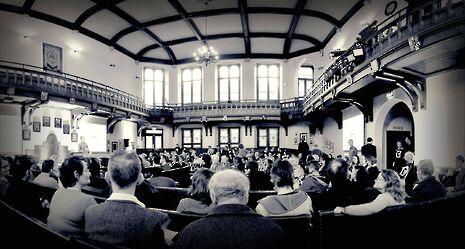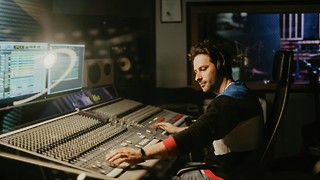Free speech continues to provoke debate in Cambridge and beyond
Safe spaces is the hot topic of the University

The topic of free speech at universities continues to provoke widespread debate, with tensions over issues such as safe spaces and no-platforming arising at many UK universities, including Cambridge.
The Cambridge Union last night held an emergency debate with the motion “This House believes university should be a safe space”, while the President of Lucy Cavendish College, has said that “culture wars are now sweeping our universities”.
Elsewhere, Oxford’s new Vice-Chancellor, Professor Louise Richardson, recently spoke out about the tensions raised by the recent #RhodesMustFall campaign, which has caused controversy both at Oxford and other universities. She has also claimed that “education is not meant to be comfortable”.
“Education”, Richardson continued, “should be about confronting ideas you find really objectionable, figuring out why it is you find them objectionable, fashioning a reasoned argument against them, confronting the person you disagree with and trying to change their mind, being open to them changing your mind. That isn’t a comfortable experience, but it is a very educational one”.
However, the Deputy President of the National Union of Students, Richard Brooks, has defended the idea of safe spaces, arguing that “student unions are often the only place where students can be themselves, a place where they can think about things and challenge ideas and thoughts in a safe environment.”
“Sometimes the only way you can ensure safe spaces remain safe is through no-platform policies,” he added. No-platforming is an idea that asserts that individuals with extreme opinions should not be given the opportunity to express their views, whereas safe spaces are designated forums where speech that is perceived to be hateful is not permitted.
This increased debate comes in the wake of a recently published survey which found “curbs on freedom of expression” to be present at 90 per cent of British universities, up from 80 per cent last year.
The survey, published by the online magazine Spiked, also found that two-fifths of student unions had no-platform policies in place, with one-fifth having safe space policies.
On the survey’s release, Spiked claimed: “Today, 55 per cent of campuses are a hostile environment for free speech, explicitly banning speakers, outlawing particular ideas, and cleansing campus of anything that might rile, offend or upset.”
Condemning what they term the “epidemic” of “campus censorship”, Spiked used a “traffic-light system” to categorise UK universities, with Cambridge being ranked “amber”.
The survey claims: “The University of Cambridge and the Cambridge University Students’ Union collectively create a chilling environment for free speech”, citing things such as the university’s decision to drop the promotional “Dear World, Yours Cambridge” promotional video featuring David Starkey following claims that he was “aggressively racist”.
Some of the other reasons cited for this categorisation were CUSU’s “Zero Tolerance to Sexual Harassment” and their “Safe Space Policy”.
Jackie Ashley, President of Lucy Cavendish, wrote in The Guardian: “As someone brought up in the full flood of the rights revolution, I can’t see any argument in favour of making life even slightly harder for somebody who feels their gender is fluid.”
“How can anyone brought up believing in the right of people to be who they are... believe anything else?”
However, she also expressed her “fear” that “the creation of too many ‘safe spaces’ is infantilising”, arguing that “in 99 [per cent] of cases it’s better to have speakers you disagree with making their case openly, and then being confronted and argued down”.
Ashley added: “If bad ideas are not openly expressed, heard and then challenged in universities, they will continue their subterranean progress through society until, perhaps, it becomes too late.”
Despite these fears, she clarified: “As the head of a college, I would not want any speaker on site who advocated or expressed hatred towards any group of my students.”
Cambridge classicist Mary Beard has also previously argued that no-platforming is “counter productive”, and that it “discourages debate and the due dissection of error”.
Writing on her blog for The Times Literary Supplement, ‘A Don’s Life’, Beard argued that “we should be in the business of subjecting all views, both those with which we agree and those with which we disagree, to public scrutiny. Free speech only means anything it is [sic] refers to views with which you disagree as well as agree – else it’s no more than a cabal.”
 News / Colleges charge different rents for the same Castle Street accommodation2 March 2026
News / Colleges charge different rents for the same Castle Street accommodation2 March 2026 News / King’s hosts open iftar for Ramadan3 March 2026
News / King’s hosts open iftar for Ramadan3 March 2026 Theatre / Lunatics and leisure centres 4 March 2026
Theatre / Lunatics and leisure centres 4 March 2026 News / Angela Merkel among Cambridge honorary degree nominees27 February 2026
News / Angela Merkel among Cambridge honorary degree nominees27 February 2026 News / Private school teacher who lied about Cambridge degree barred from teaching27 February 2026
News / Private school teacher who lied about Cambridge degree barred from teaching27 February 2026









